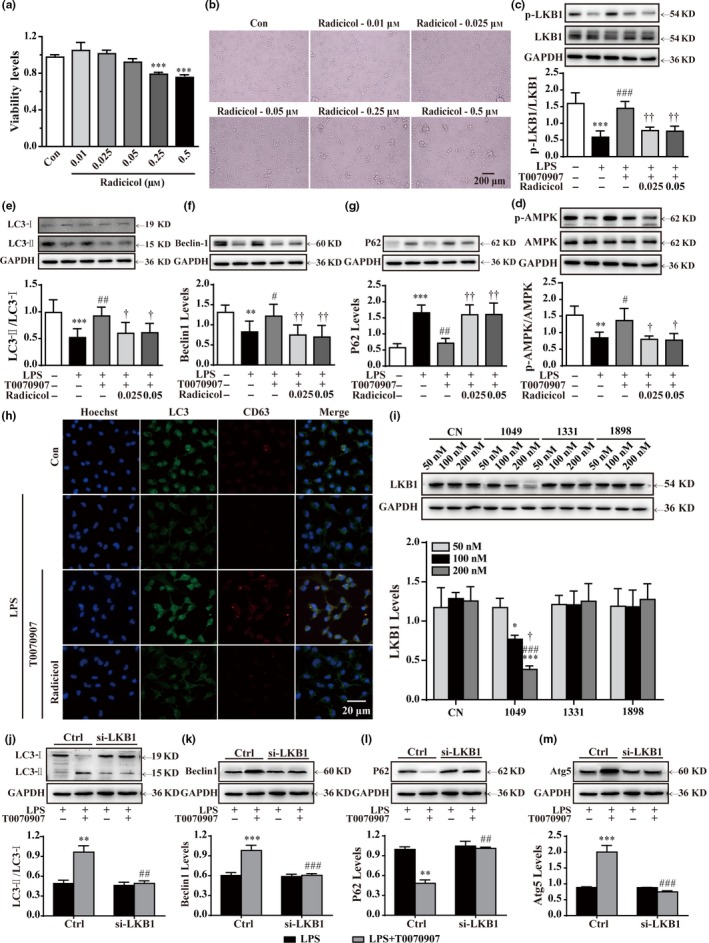Figure 4.

Phosphorylation of LKB1–AMPK is necessary for T0070907‐mediated upregulation of autophagy. (a, b) Below the concentration of 0.05 μm, radicicol did not influence the viability of the microglia. After LPS stimulation for 15 min, the LKB1 inhibitor radicicol (0.025 and 0.05 μm) was applied for 15 min before treatment with PPARγ antagonist T0070907 for 24 hr. (c–g) Radicicol turned over the protein expressions of LKB1, AMPK, LC3, Beclin1, and p62 in the microglia treated with LPS and T0070907. Data are presented as mean ± SEM, n ≥ 4, *p < .05, **p < .01, ***p < .001, compared to the Con group; # p < .05, ## p < .01, ### p < .001, compared to the LPS group; † p < .05, †† p < .01, compared to the LPS+T0070907 group. (h) Immunofluorescence staining with of LC3 (green), CD63 (red), and nuclei (blue) in the LPS, LPS+T0070907, and LPS+T0070907 + radicicol groups. Scale bar = 20 μm. (i) Quantitation of Western blotting data showing declines in LKB1, which was used to observe the efficiency of transfection. Microglia were pretreated with si‐LKB1 (500 nm) or vehicle for 24 hr and then stimulated with LPS for 15 min and treated with PPARγ antagonist T0070907 for 24 hr. LKB1 siRNA prevented T0070907‐induced increases in LC3‐II/LC3‐I (j), Beclin1 (k), and Atg5 (m) and T0070907‐induced decreases in P62 (l). Data are presented as mean ± SEM, n ≥ 4, **p < .01, ***p < .001 compared to the LPS group in the Ctrl; ## p < .01, ### p < .001, compared to the LPS+T0070907 group in the Ctrl
